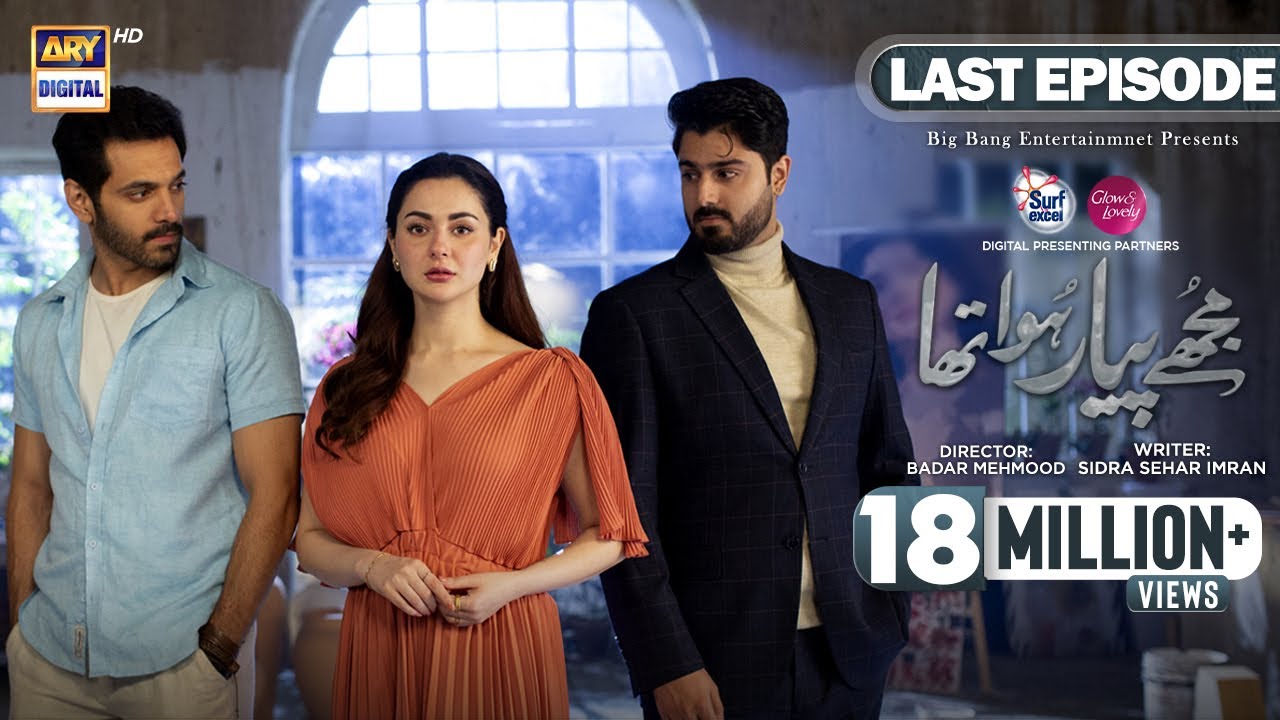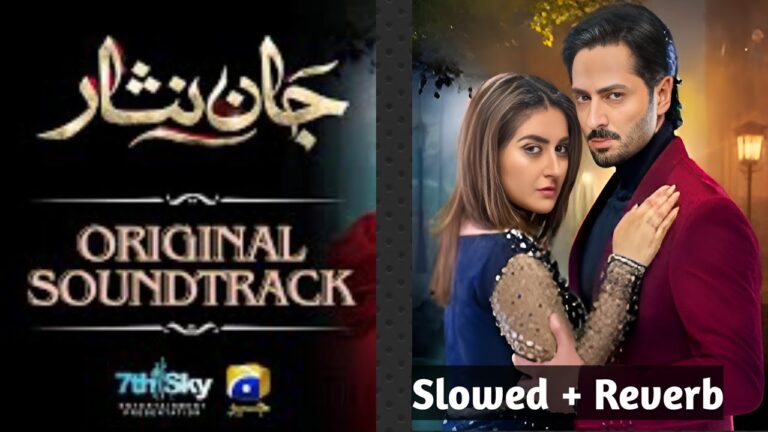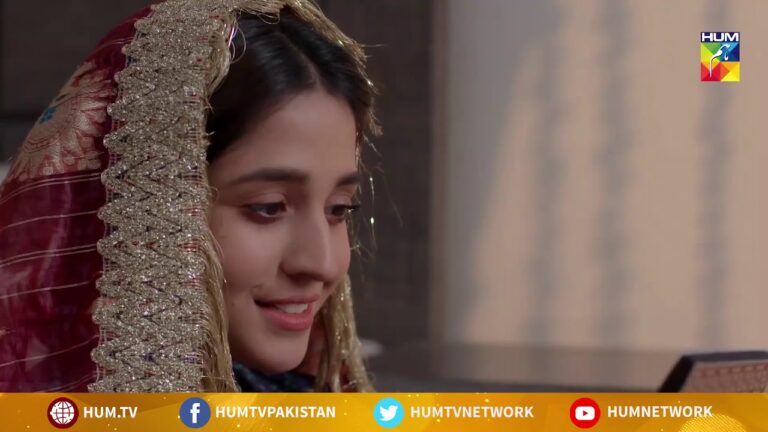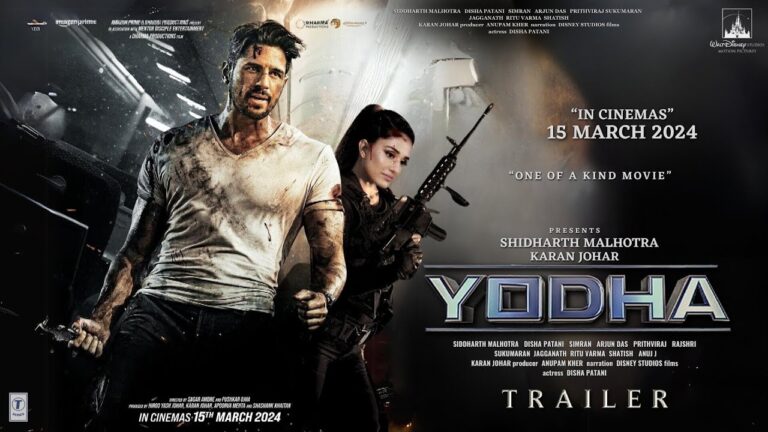Mujhe Pyaar Hua Tha Drama Review: Mujhe Pyaar Hua Tha (Urdu: مجھے پیار ہوا تھا, lit. ’I Fell in Love’) is a 2022 Pakistani drama serial written by Sidra Sehar and directed by Shehzad Kashmiri. It stars Hania Amir, Wahaj Ali, and Zaviyar Naumaan Ijaz in lead roles. The drama explores the themes of love, loss, and betrayal, and has been praised for its performances, direction, and writing.
A Story of Love, Loss, and Betrayal:
The drama tells the story of Maheer (Hania Amir), a young woman who is in love with her cousin, Saad (Wahaj Ali). However, Saad’s family does not approve of the match, and they force him to marry Areeb (Zaviyar Naumaan Ijaz).
Maheer is heartbroken, but she eventually agrees to marry a man named Shehryar (Omair Rana). However, her marriage is not happy, and she soon finds herself drawn to Saad again.
Saad and Maheer begin an affair, but their happiness is short-lived. Areeb finds out about the affair, and he is determined to get revenge. He eventually succeeds in killing Saad, and Maheer is left devastated.
Compelling Characters and Stellar Performances:
The drama boasts a talented cast who deliver captivating performances. Hania Amir is excellent as Maheer, capturing her strength, vulnerability, and heartbreak. Wahaj Ali is also impressive as Saad, portraying his love for Maheer and his struggle to choose between his family and his heart. Zaviyar Naumaan Ijaz is convincing as Areeb, and Omair Rana provides strong support as Shehryar.
Beyond Entertainment: Social Commentary and Relevance:
Mujhe Pyaar Hua Tha is not just a gripping drama; it is also a powerful social commentary. The drama explores the themes of love, loss, betrayal, and revenge, and it offers a nuanced look at the complexities of relationships.
The drama also addresses some important social issues, such as domestic violence, child marriage, and honor killings. It highlights the need for change in society, and it encourages viewers to think critically about the issues that are raised.
The Reception and Its Impact:
Mujhe Pyaar Hua Tha was a critical and commercial success. It was praised for its performances, direction, writing, and social commentary. The drama also sparked a national conversation about the issues that it raised.
Mujhe Pyaar Hua Tha is a powerful and thought-provoking drama that is sure to stay with viewers long after they have finished watching it. It is a must-watch for anyone who is interested in Pakistani dramas, social commentary, or simply a good story.
Beyond the Narrative: Exploring the Nuances of Mujhe Pyaar Hua Tha:
While the core review provides a foundation for understanding the drama, further exploration can offer a deeper analysis:
- Behind the Scenes: The Creative Process: Examining the director’s vision, the writer’s research, and the challenges faced in creating a drama that deals with sensitive social issues.
- The Soundtrack: Evoking Emotions: Analyzing how music and sound design contribute to the emotional impact of the narrative. Does the music highlight moments of love, loss, or redemption?
- The Portrayal of Mental Health: Examining how the drama depicts the characters’ mental health struggles, such as depression and anxiety. Does the drama offer any insights into the importance of mental health awareness and support?
A Lasting Impact: Beyond Entertainment and Social Commentary:
Mujhe Pyaar Hua Tha serves as a reminder of the power of storytelling to address important social issues and promote positive change. It highlights the need for empathy, understanding, and compassion in the face of adversity.
Beyond entertainment and social commentary, the drama compels viewers to reflect on their own lives and relationships, and to consider the ways in which they can contribute to a more just and equitable society. It is a valuable contribution to Pakistani storytelling and a testament to the power of art to inspire social change.
Delving Deeper: Unveiling the Layers of Mujhe Pyaar Hua Tha
The review of Mujhe Pyaar Hua Tha provides a comprehensive overview of the narrative, characters, social commentary, reception, and criticisms. However, further exploration can offer valuable insights and spark additional discussion:
1. Navigating the Complexities of Forbidden Love:
The drama’s core revolves around Maheer and Saad’s forbidden love. Diving deeper can offer valuable analysis:
- How does the drama depict the societal and cultural factors that contribute to the taboo surrounding their relationship?
- Does the narrative provide any solutions or alternative paths for characters caught in similar situations?
- Does the portrayal of their forbidden love evoke empathy or raise ethical concerns among viewers?
2. The Role of Family Honor and Societal Pressure:
The concept of family honor plays a crucial role in the drama, causing significant conflict. Further exploration can reveal:
- How does the drama portray the complexities and potential harm associated with prioritizing family honor over individual happiness?
- Do the characters who prioritize family honor experience any personal growth or internal conflict?
- Does the depiction of this social pressure resonate with viewers from different cultural backgrounds?
3. The Portrayal of Female Agency and Choice:
While Maheer is presented as the protagonist, her agency and choices throughout the drama are debatable. Examining this further can offer insights:
- To what extent does Maheer have the freedom to choose her path in life, considering societal and familial pressures?
- Does the narrative offer any commentary on the limitations women face in pursuing their desires?
- How can viewers critically engage with Maheer’s choices and their potential consequences?
4. Exploring the Ending and Interpretations:
The ending of the drama has elicited diverse reactions. Delving deeper can enhance understanding:
- How does the tragic ending contribute to the overall message of the drama and its social commentary?
- Does the ending offer any suggestions for potential alternative outcomes or possibilities?
- How can viewers approach the ending through different interpretations and perspectives, fostering critical discussion?
5. Beyond Criticism: Recognizing Strengths and Potential for Growth:
While the drama received some criticisms, it also holds significant strengths. Acknowledging these can offer a balanced perspective:
- Despite potential limitations, how does Mujhe Pyaar Hua Tha contribute to diversifying Pakistani drama narratives?
- Does the drama spark important conversations regarding social issues, even if viewers hold differing opinions?
- How can critical engagement with the drama, its strengths, and weaknesses contribute to a richer understanding of social dynamics and storytelling in Pakistani dramas?
By delving deeper into these additional aspects, one can gain a more nuanced understanding of Mujhe Pyaar Hua Tha’s significance as a drama that transcends mere entertainment. It serves as a platform for critical reflection, prompting engagement with complex themes and encouraging viewers to consider different perspectives, ultimately contributing to a richer understanding of social realities, individual choices, and the complexities of human relationships.
Criticisms and Limitations:
While the drama was praised by many, it also received some criticisms. Some viewers felt that the plot was too predictable, and that the characters were not well-developed. Others felt that the drama glorified violence and revenge.
Despite these criticisms, Mujhe Pyaar Hua Tha remains a popular and thought-provoking drama. It is a valuable contribution to Pakistani storytelling, and it is sure to continue to be discussed and debated for years to come.










+ There are no comments
Add yours